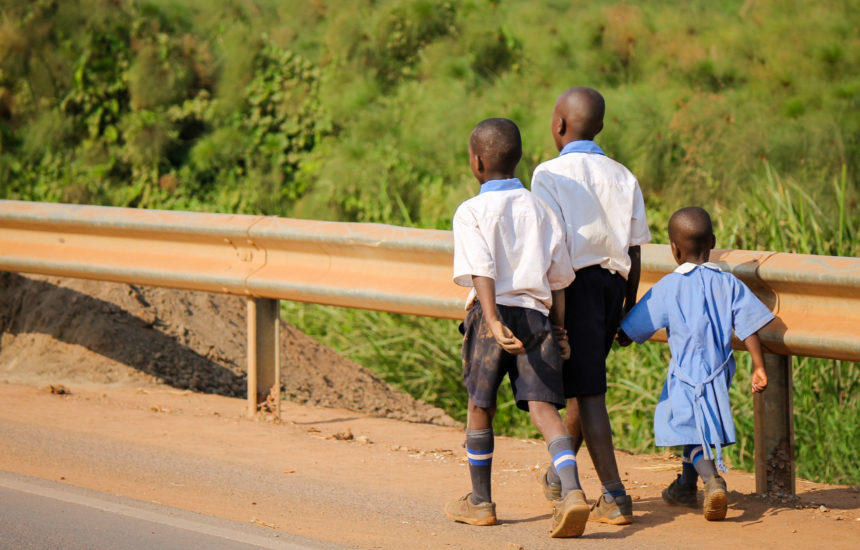Education News From Uganda


The Uganda Ministry of Education to extend teaching in mother tongues
Kampala: The Ugandan government introduced the use of mother tongue as a medium for instruction in primary schools in 2007, during the introduction of the thematic curriculum. The Ministry of Education will expand teaching using vernacular to improve literacy, as learners comprehend the curriculum better when it is introduced to them in their home language. Rosemary Seninde, State Minister of Primary Education, made a statement at the opening of the 4th Annual National Literacy Conference in Kampala regarding the Ministry’s plan to generate relevant assessment tools to assess the learner’s competencies.
For more information: http://www.monitor.co.ug/News/Education/Ministry-extend-teaching-mother-tongues/688336-3305054-uiu823/index.html
Leaders root for Girl Child Education – 5/12/2016
Gulu: Nwoya District chairman Patrick Okello Oryema said that authorities in the district are drafting a by-law that will emphasize career guidance and girl child education from an early age to help parents realize the importance of education for girls. “As a district, the education ordinance is in the pipeline to guide both the community and partners in education on what should be done to keep our children in school,” he said.
For more information: http://www.monitor.co.ug/News/National/Leaders-root-girl-child-education/688334-3474562-82euvf/index.html
Uganda Leads in Implementing the SDG 4 – 4/08/2016
Kampala: Uganda is spearheading the process of implementing Sustainable Development Goal number four on education in Eastern Africa, with a focus on early childhood development and gender equality. The development goal on education implores countries to “Ensure inclusive and equitable quality education and promote lifelong learning opportunities for all.”
Findings: A new government self-assessment report released by the Office of the Prime Minister revealed that half of the pupils in Universal Primary Schools (UPE) cannot read or answer simple questions in mathematics. The report also indicated that proficiency for Primary Six pupils in UPE schools has not improved in the last 10 years and the situation is getting worse. John Chrysostom Muyingo, the State Minister for Higher Education, who officiated at the opening of a two-day national consultation meeting on SDG4 in Kampala, also admitted that the country’s performance on promoting early childhood education, skills development for youth, and delivery of quality education is still lacking.
For more information: http://www.monitor.co.ug/News/National/Uganda-leads-in-implementing-sustainable-goal-on-education/688334-3329598-mnon6xz/index.html
Ugandan leads UN campaign on Girl Child Education – 11/22/2016
Kampala: The United Nations child-at-school youth ambassadors have started a youth-for-gender-equality and girl-at-school campaign to push governments around the world to give teenage girls priority in education. The drive was part of the side events at the United Nations General Assembly in New York. Led by Hillary Taylor Seguya, Global Youth Ambassador from Uganda, the group campaigned for the girl child, particularly in Africa, to be at the center of education policy discussion and implementation in order to promote their empowerment and gender equality. “We want a world [and] school drive addressing challenges of young girls and children with disabilities [to be] given equal opportunities . . . to exploit their ingenuity through skills development,” Seguya said.
For more information: http://www.monitor.co.ug/News/National/Ugandan-co-leads-UN-campaign-on-girl-child-education/688334-3390536-nsav5iz/index.html
Speaker criticizes Ministry about feminine hygiene policies – 09/2/2016
Kamuli: Speaker of Parliament, Rebecca Kadaga, has criticized officials of the Ministry of Education for failure to include in the Ministry’s budget the provision of feminine hygiene products for girls across the country. Speaking in Kamuli, where she presided over the commissioning of Canaan Junior School, which was established with funding from an Australian-based charity, Kadaga said that the provision of feminine hygiene products should be included under grants for universal education. “We as legislators have pushed for inclusion of menstrual hygiene management, but the Minister of Education will say the Finance Ministry has no funds,” she said. She added that the decision by Parliament was based on the realization that issues revolving around menstrual hygiene account for more female school drop-outs, since feminine hygiene products are out of the financial reach of many families. The Kamuli Woman MP said she hopes there will be changes in the mindset of officials, especially now that First Lady Janet Museveni is heading the docket.
For more information: http://www.monitor.co.ug/News/National/Kadaga-criticises-ministry-on-pads/688334-3326066-15dsvomz/index.html
Parents pay fees for government free education – 06/30/2016
Kampala: A new government report shows that parents are funding almost half of the costs of educating their children under the government’s free education policy, contrary to what has been portrayed previously. The report, National Education Accounts, was a culmination of research done in the last two and a half years by Uganda Bureau of Statistics (UBOS) and the Ministry of Education. The research was supported by the United Nations Educational, Scientific and Cultural Organisation (UNESCO) and considered five financial years beginning in 2009. According to the report, 60% of government contribution to education goes to teachers’ salaries, 11% to non-teaching staff, 16% to recurrent expenditures, and only 2% for teaching and learning materials. However, the report shows that parents pay a significant amount through school fees; purchase of school uniforms, scholastic materials, and transport; and provision of pocket money and meals for their children while at school. “We have been pretending that government spends a lot on education. But households, comprised of parents and individuals, bear the largest burden of education funding in Uganda,” Nelson Wanambi, the principal economist at the Ministry of Education, said during the release of the report.
For more information: http://www.monitor.co.ug/News/National/Parents-pay-half-fees-for-government-free-education/688334-3273396-w3yur6/index.html
Resources:
United Nations Uganda. (2016). Uganda: Our constitution, our vision, our SDGs. Download the report here.
Liaison participated in the following activities:
Reflections: